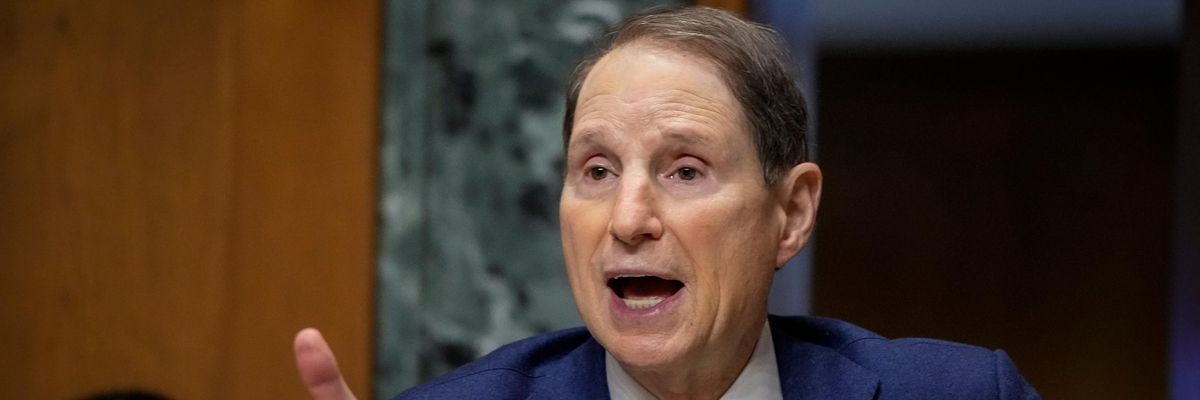In a bid to "restore fairness to the tax code and level the playing field for working families," U.S. Sen. Ron Wyden on Thursday led 15 Senate colleagues in introducing the
Billionaires Income Tax Act, legislation the Oregon Democrat said would "ensure billionaires start paying their fair share in taxes."
"Right now, the average billionaire can wriggle their way into a measly 8% tax rate while a nurse or firefighter making $45,000 is paying a 22% tax on their wages," Wyden, who chairs the Senate Finance Committee, said on the upper chamber floor.
"Tax laws simply don't apply to billionaires in the same way they do to everybody else," the senator continued. "They're optional, while everybody else's tax rules are mandatory."
"Working people don't get to play by the same rules as billionaires," he added. "They don't get to call up an army of high-priced lawyers and accountants every time they don't feel like paying their taxes."
That unjust disparity, Wyden said, boils down to three words: "Buy, borrow, die."
"Here's how it works: A billionaire buys a business, and then borrows against its growing, untaxed value to fund their extravagant lifestyle," he explained. "Everything from superyachts, to luxurious vacations, expensive art deals, you name it. It goes up and up in value all while not paying a dime in tax."
"And when they die," the lawmaker added, "their assets are passed to their kids—often entirely tax-free—and the cycle continues."
Wyden said his bill "will put a stop to" buy, borrow, die, "one of the most common schemes billionaires use to avoid paying their fair share."
The measure would raise an estimated $560 billion over 10 years from less than 1,000 of the wealthiest U.S. households.
Sen. Sheldon Whitehouse (D-R.I.), one of the bill's co-sponsors, said in a statement that "teachers and firefighters shouldn't be paying higher tax rates than the ultrawealthy. It's that simple."
Co-sponsor Sen. Elizabeth Warren (D-Mass.) asserted that "for too long, billionaires have rigged the rules to cut their taxes to the bone, all while working families struggle to make ends meet."
"We should be investing in American families, not letting billionaires off the hook—and the Billionaires Income Tax takes an important step to make our tax system fairer," she added.
The Billionaires Income Tax Act is
supported by more than 100 organizations.
Earlier this year, U.S. President Joe Biden unveiled a plan to raise taxes on wealthy individuals and corporations to 25%.
"A billionaire minimum tax of just 25% would raise $440 billion over the next 10 years," the president said on social media on Thursday. "Imagine what we could do if we just made billionaires pay their taxes like everyone else."
Wyden's bill was introduced on the same day that the advocacy group Americans for Tax Fairness—which supports the legislation—reported that "the collective fortune of America's 741 billionaires has grown to $5.2 trillion at the end of November 2023, the highest amount ever recorded."
Also on Thursday, UBS
published a report revealing that in the 12-month period between April 2022 and April 2023, newly created billionaires around the world acquired more wealth through inheritance than entrepreneurship for the first time since the Swiss bank began studying trends of the ultrawealthy in 2015.

